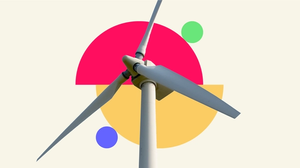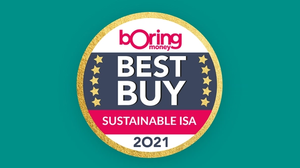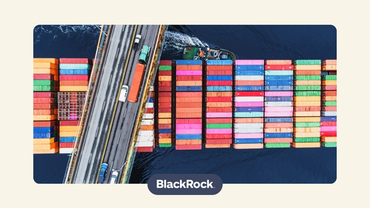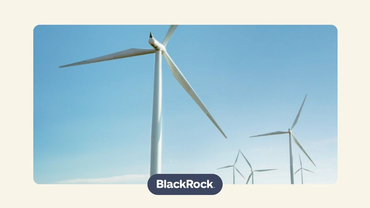Have sustainable funds run their course?
17 Aug, 2021
By Cherry Reynard
Are sustainable funds starting to lose steam?
Certainly, it’s one conclusion that could be drawn from a dismal recent run of performance that has seen sustainability funds sink to the bottom of the performance tables. An attempt by Liontrust to launch an ESG-focused investment trust fell flat due to lack of demand. Was it just a fad after all?
The turnaround in performance has been tough for investors.
This is perhaps best highlighted by the performance of the iShares Clean Energy fund, which rose an astonishing 132.8% in 2020 (source: Trustnet), but has slumped 17.7% for the year to date. Active funds have done a little better – the Schroders Global Energy Transition fund and M&G Climate Solutions funds are up 1.0% and 2.3% respectively, but are still dull compared to other parts of the market.
Liontrust was hoping to raise £150m for its ESG trust, but abandoned the project in early July. The group has a well-regarded team, prompting Laith Khalaf, financial analyst at AJ Bell to comment that if they couldn’t get an ESG investment trust off the ground, it is hard to see anyone else doing so.
The long-term growth prospects of sustainable funds
However, before anyone decides that clean energy/good governance/social responsibility is just a flash in the pan, it’s worth examining the numbers involved. Scott Spencer, fund manager on the multi-manager people team at BMO Global Asset Management, points out: “This is the biggest growth opportunity of the next decade. It is estimated that somewhere between $100-£150 trillion will need to be spent on making the global economy sustainable and to keep global warming within the 1-2 degree targets. For a long-term investor, that is the endgame.”
What has gone wrong in the short-term?
Spencer says: “It got a little bit over-valued, certainly. The sector is tied to growth companies, rather than the ‘value’ companies that have done well recently.”
Jake Moeller, senior investment consultant at Square Mile, says: “There are compositional biases which will provide responsible investment funds with more or less conducive market environments. Being naturally underweight say mining stocks and overweight tech during the early part of the pandemic was a tailwind.
“Following the Covid bounce in November 2019, there has been a rotation back into lower quality cyclical stocks and undervalued sectors such as oil, metals and chemicals have improved their outlooks as momentum here returns to the market. These aren’t necessarily likely overweight positions in most responsible investment funds. This isn’t a cause for concern but a reminder that investors need to understand style biases in responsible investment funds are important to understand.”
The pandemic hasn't changed things as much as people had expected
Mark Northway, investment manager, Sparrows Capital, adds that sustainability funds have been hit by the realisation that the world hasn’t changed as much as people expected. At least, not yet: “ESG / SRI mandates performed very strongly in 2020 based on the expectation of a new paradigm for the economy – fewer tangible assets, fewer staff, less use of commercial real estate, greater use of tech and greater focus on intellectual property….The relative reversal in 2021 is primarily explained by the initial success of the vaccine rollout in developed countries, which has fuelled a resurgence of more traditional economic and business models, at least for the time being.”
Neill Blanks, research director at MainStreet Partners, believes the Liontrust fund may have struggled because the market was saturated: “It was only natural that these funds saw some pull back. Indeed, with investor focus shifting to all things ESG, 2020 saw records new inflows into ESG funds with €233 billion in Europe and $51 billion in the US, according to Morningstar.” He points out that 111 new funds were launched in the first quarter of this year.
Spencer says the correction may have a little further to run, but will ultimately prove to be short-term and does not disrupt the long-term prospects for companies involved in this part of the market.
Investors often disagree on which sustainable funds are the best
For investors that remain convinced of the merits of sustainable funds, the choice can be complex. One investor’s sustainable choice is another investor’s horror show and there is significant variation even among ratings providers and analysts. For example, MSCI ranks Tesla as the top ESG-performer among carmakers globally, while FTSE puts it as the worst. The difference is a result of MSCI giving it a strong score for its low emissions, while FTSE marks it down for its high-emission factories.
Bank of Montreal recently revealed they are divesting from Microsoft, a stalwart in many sustainability portfolios, because they have some virtual reality tech that is being sold to the military. Tesla and Microsoft are both huge index weightings, so the decisions fund managers make on those companies will significantly affect performance.
Spencer says this is a sector best approached through an active manager, who can navigate the various peaks and troughs, excitement and gloom. He also believes that finding fund managers that engage with companies to improve their ESG scores is just as important as targeting obvious areas such as clean energy. “Data supports the view that the best lift in share prices comes not from buying today’s sustainable winners, but by buying those companies that are transforming their businesses.”
Climate change isn't the only concern
It may also be worth looking at the type of areas prioritised by fund managers. Sustainability is a big area, going far beyond climate change. Much of the recent boom and bust has been focused on climate change, but there are other areas for ethically-minded investors – health and wellbeing, social responsibility, the circular economy. These areas are growing, but have yet to attract the lofty valuations that have been seen in the clean energy and climate change segment.
Blanks does not believe investor faith in sustainability-related assets has gone into reverse. The steady build in assets for sustainability strategies shows it has gone some way beyond ‘fad’ status. This is a new way of investing. In a similar way to that other great trend – technology – there will be times when investors get very excited over this part of the market and the fallout may be painful. Nevertheless, the long-term trend is here to stay.








